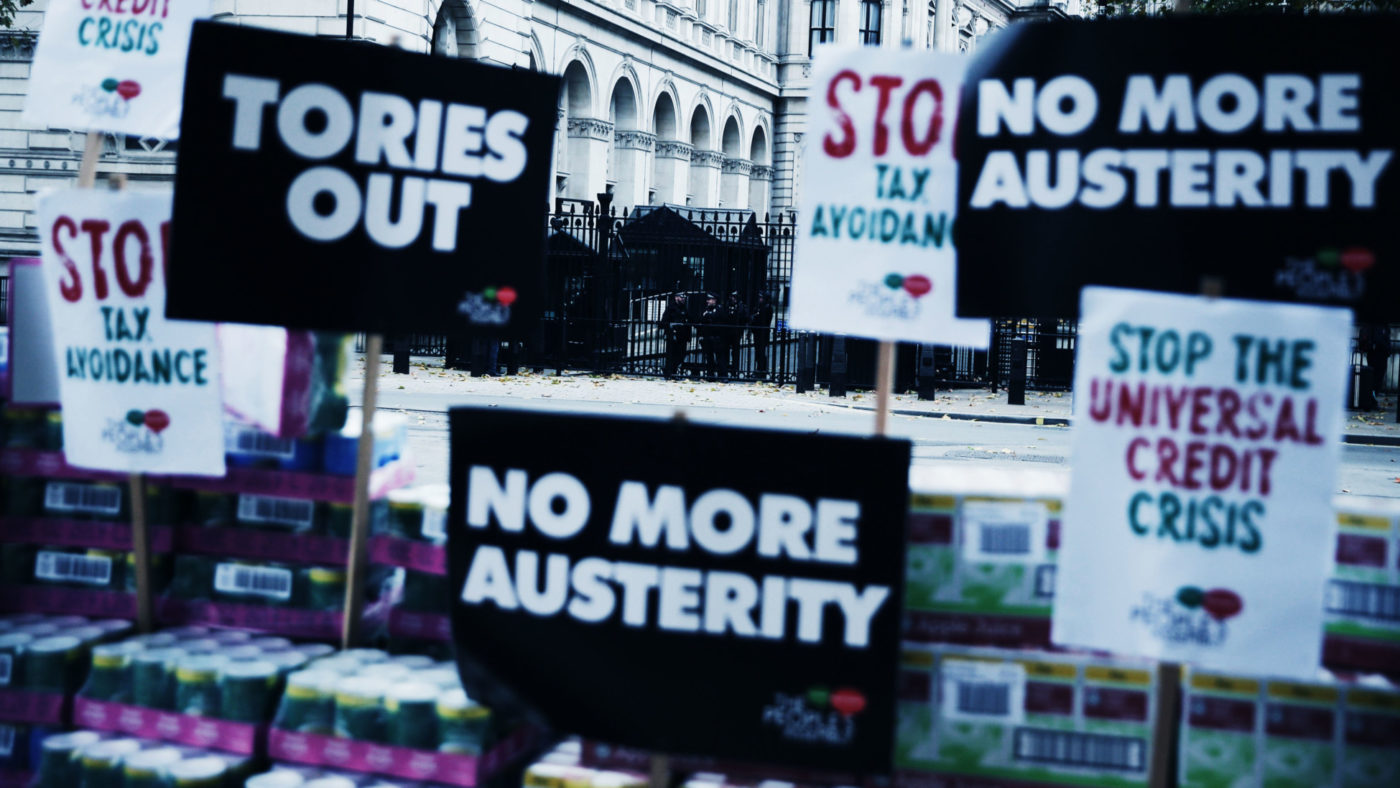Nick Timothy today called on Philip Hammond to make a dramatic volte-face at next week’s Spring Statement. According to the Prime Minister’s former aide, the Chancellor should declare that “austerity, Mr Speaker, is no more”. Of course, this growing clamour for an end to fiscal restraint has come on the back of news that the UK is finally running a budget surplus on day-to-day spending.
There is no doubt that this is a landmark achievement for the government. In 2010, the current budget deficit was nearly £100bn and this has now been wiped out – mostly thanks to the determination of George Osborne. It is easy to forget just how much pressure Osborne was under to abandon his fiscal consolidation plans. In the early part of this decade a chorus of voices, including the International Monetary Fund (IMF), proclaimed that fiscal consolidation was wrecking the economic recovery. Yet he broadly stuck to the course and the IMF has now concluded that Britain is much better off for it.
But does the positive news on the current budget mean we can relax and loosen the purse strings? Timothy and others, including prominent backbencher Nick Boles, argue that now is the time for more departmental spending and greater government investment.
The first thing to note is that there has already been a considerable amount of fiscal loosening since the EU referendum. These decisions will already cost the Exchequer nearly £60bn. Further extending this in a significant way would seem deeply irresponsible, particularly since the UK’s debt-to-GDP ratio has grown to nearly 90 per cent and the UK Government is still running a substantial overall budget deficit – not to mention the fact that the UK may need contingency resources if the Brexit negotiations break down.
Of course, Timothy is right that boosting the UK’s economic growth and dealing with lagging productivity are absolutely critical priorities for the government. But complacency on national debt could actually end up harming growth.
A paper published by the European Central Bank in 2010 argued that a debt-to-GDP ratio above 90-100 per cent of GDP has “a deleterious impact on long-term growth”. Some studies do, of course, disagree with the notion that there is a specific debt-to-GDP ratio above which economic growth is hampered. This very point was made in an IMF working paper. However, it did not argue that debt is irrelevant for economic growth. In particular, the paper claimed that growth is influenced by the trajectory of debt, where countries with high but declining levels of debt grow as fast as their peers.
We should also be mindful that the UK’s relatively high debt-to-GDP ratio leaves us vulnerable if another recession hits us. And we are, after all, due a downturn. There has been a recession in every decade since the 1970s. It’s vital that we get debt down to a level that leaves us prepared for any future economic turbulence.
The Government can also set the conditions for a boost to productivity without short-term costs to the Treasury. Freeing up the UK’s planning system, embracing mechanisation and taking big decisions on infrastructure in areas such as airport expansion would be a huge boon to the productivity prospects for the UK. Prioritising these kind of decisions, rather than turning on the spending taps, would be a far more responsible – and possibly more effective – way of boosting Britain’s lagging productivity.
Of course, there is most certainly a case for increasing spending in various areas. The major problem with the UK’s fiscal consolidation has been how unbalanced it’s been. While overall spending in real-terms has remained roughly flat since 2010, the impact of fiscal restraint has been very different across departments. Areas such as pensioner benefits and international aid saw very large increases, while other areas saw swingeing cuts.
One of the best parts of the Conservative Party’s 2017 manifesto was an attempt to redress some of these imbalances. Proposed reform of the triple-lock on pensions, in particular, would have potentially controlled the ever-growing costs associated with this policy. Analysis I conducted for the Centre for Policy Studies showed that if the state pension had been uprated by CPI inflation or a double-lock instead of the triple-lock since 2010, the Treasury would now be £8.6bn or £4.4bn per year better off respectively.
Controlling the exponential growth of pensioner benefits and using the proceeds to increase spending elsewhere would be a responsible way forward. But this seems to have been ruled out. Disappointingly, the Government has dropped two of the most responsible bits of the 2017 Conservative manifesto. Commitment to reform of the triple-lock on pensions and a pledge to means-test winter fuel payments have now both fallen by the wayside.
Despite Britain running a current budget surplus, difficult decisions still unfortunately lie ahead. Yes, Britain’s day-to-day spending is now in balance, but the UK’s debt level is high and the UK Government is still living beyond its means. Now is not the time to abandon fiscal responsibility.


